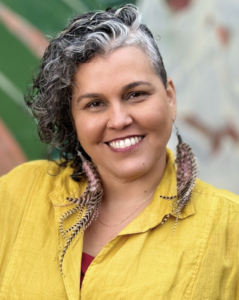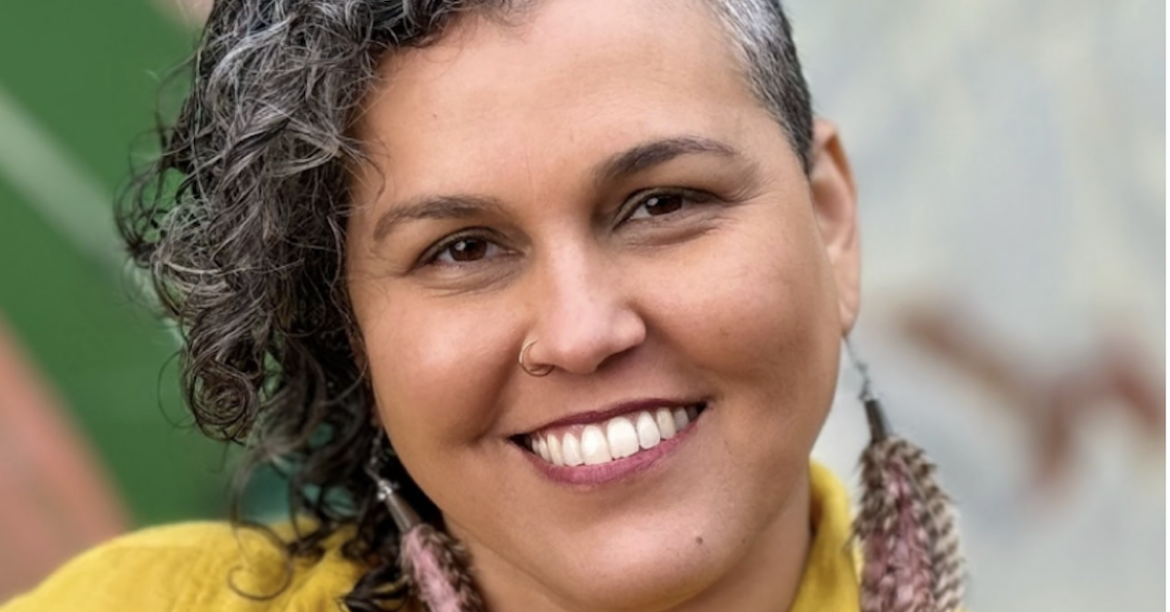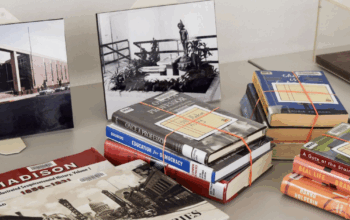
ananda mirilli cares deeply about making Madison a better and more equitable place. Currently, they’re an education equity consultant for the Wisconsin Department of Public Instruction, where they curate professional development opportunities for educators to address racial disparities in K-12 schools, and they also facilitate a class at UW–Madison to help organizations implement anti-racist practices and policies.
On top of that, mirilli is an advocate, mom, former school board member and is currently pursuing their doctorate in educational leadership and administration at Alverno College. Ultimately, they’re looking at how to create conditions of belonging for K-12 educators in a virtual setting and how educators can feel supported in their work.
Although they see glaring disparities in how resources are allocated in the city, mirilli is profoundly passionate about sparking change in Madison. Despite all the city’s flaws, mirilli believes in the power of community to make the community a safer space for all.
What do you think is the biggest challenge our community faces?
I think the city is structured and organized in a way that segregates groups of people. One of the things I noticed living in Madison was how, depending on what side of the town you live in, which neighborhood you live in, you may have a completely different experience than somebody else who lives not far from you — and that maintains the homogeneity of certain communities.
I think that creates or perpetuates stereotypes of certain communities. It prevents, in particular, Black, Brown, and Indigenous communities that live in Madison from experiencing what Madison has to offer. It also prevents the communities from being fully served by the amazing features that Madison offers.
I’ll give you a few examples. In Madison, we’re very proud of our bike paths. I used to live on the south side — off of Rimrock and Moorland — and it wasn’t until a few years ago that we finally had a painted lane on the street designated for bikes, even though we’re super close to a very busy bike path. That particular neighborhood was not on the minds of the city planners and the city leaders.
We take pride in our bus system. In some parts of the city, it’s really efficient — you can go anytime, walk out your door, and have the bus right there. Again, on the south or north sides (and certain pockets of the west or southwest side), you have to walk a long time to get a bus, and you may have to take two different transfers to travel a short distance.
The number of music festivals you see in particular neighborhoods and access to fresh produce happens in specific areas of the city and not others. This food apartheid that we experience, this cultural apartheid — this de facto segregation that we experience in the city — it’s something we still have not reconciled and addressed in a systemic way.
What do you wish people in our community understood better?
It is possible to have both/and. It is possible to increase opportunities for everyone in the city. It is possible that everyone can belong to Madison. It doesn’t need to be at the expense of anyone. I think when we have political discourse or [talk about] financial allocation or resource allocation in the city, it’s often, ‘What side of town will get that extra resource?’
I’ll give you an example of that [too]. Years ago, Madison decided to have a public market, and there was research around it. There was an organization of consultants that did an analysis. The result of the analysis was to say that Park Street, the south side, had this great opportunity to be a site for a public market. [But] when they looked at the business case, they determined that, of course, the place that is already thriving was going to be the most practical.
So then, the market, instead of being on the south side, got allocated to be on the east side, which already had other markets. Then what comes after that — particularly in progressive cities like Madison — is that people want to support these initiatives that are creating or exacerbating inequities, but they say they want to make this an equitable place.
That’s the struggle, I think, for a lot of communities of color in the city that advocate for a more affordable city — to constantly feel defeated by the way the city operates and allocates resources.
What is one change you would make if you could that would make life better for people in our community?
An intentional effort to build community within neighborhoods outside of the constraints of race, in particular, and having a racial justice lens in city planning in a way that connects to community.
We’re always hearing from the same people. We are always catering to the same people, the people that have the loudest voices — we know what they’re thinking and what they want from Madison. And oftentimes, what they want is not a distribution of resources. They want more resources. They want to generate [more] for themselves or their pocket of the city or their neighborhood.
Instead, what would it look like to have this effort of building community across neighborhoods? And not at the expense of communities of color, where people of color have to do the actual work? I feel like even when things are for us, they’re not at our place, like they’re not in our neighborhoods. I wish we had a more intentional way to build a Madison community that dispels this myth of a white Madison.
What in our community gives you hope?
I think this community has incredible people who continue to want change. This community is full of brilliant and smart individuals who can facilitate that change. Perhaps more than other communities, I think we are primed to support that change and really come together in a meaningful way. I hope we get to experience that when the communities of color get to experience all that Madison has to offer.
This interview has been edited and condensed for clarity.






